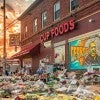
America needs more police — just a different kind
In the 10 months since the killing of George Floyd, has policing in America changed at all? We need to rethink what it means to protect and serve the well-being of citizens.

America needs more police — just a different kind
In the 10 months since the killing of George Floyd, has policing in America changed at all? We need to rethink what it means to protect and serve the well-being of citizens.

Why it’s time to worry about soaring home prices in America
As the housing demand continues to outpace supply, prices have risen to levels not seen since 2008. While industry analysts don’t see the current boom going bust like the one leading up to the Great Recession, they are nonetheless concerned. One fear is the market could put homeownership out of reach for a generation of Americans and be bad for everyone in the long run.
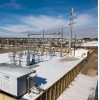
Now that failing infrastructure has our attention, it needs our investment
There’s no question the United States is living off past investments in infrastructure without building the new infrastructure we need — or even upgrading the old infrastructure we have. It’s time to invest heavily in quasi-public infrastructure and ramp up effective public oversight of that infrastructure so it will work for us in emergency situations.
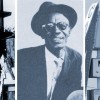
Why I was wrong about Willie and Houston
Responses to an essay on music and place lead a writer to reconsider his musical relationship with the two big cities he knows best — Los Angeles and Houston.

Why 'Born to Run' always makes me think of Houston
I know, it's weird — the thing about how music always associates with place. I first heard the Beach Boys on a snowy winter's day in my brother's chilly bedroom — and decades later became the mayor of a surf town. And even though I have been listening to "Born To Run" for 45 years, I now always associate it with a drive from Austin to Houston a few years ago.
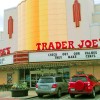
5 lessons Trader Joe’s can teach the city of the future
Making the cities of tomorrow more resilient to pandemics and other threats won’t require completely rethinking planning and design as we know them, but it will require functional problem-solving, practical solutions, better data mining and analysis, and more flexibility. All of which have helped the beloved grocery store chain improve its bottom line during the COVID-19 pandemic.
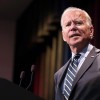
Here’s how the Biden administration will be a boost for American cities
From an eviction moratorium to support for infrastructure, transportation and affordable housing, there are many moves President Joe Biden may make that will benefit cities. Here’s a look at some of them.
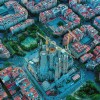
Urban planners and designers sometimes think they have an exclusive “lock” on an understanding of place. But in fact everybody can develop their own “place gene.”
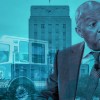
In Houston, some want to see the mayor lose control — at least some of it
The city’s strong mayor has the power to set the City Council agenda, which means nothing can go before the council without the mayor’s OK. A coalition led by the fire union is trying to rein in that strength.

Big-city planners shouldn’t overlook the lessons of small-town design
Influenced by the Garden City movement, Badin, North Carolina, is a small gem of urban planning whose design called for green space, residential areas and commercial development in proportionate amounts. The planning of small towns like Badin can serve as an example for larger cities as they continue to grow.

Finding the small-scale urbanism his hometown lost to urban renewal
After a car-centric urban renewal plan irrevocably changed the town where he grew up, a young urbanist found the essence of Auburn, New York, in Southern California.
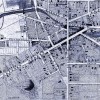
Urban renewal was supposed to save my hometown, instead it ripped it apart
A failed plan to breathe life back into the economy of the beautiful, walkable city where I grew up left it half the place it once was, broke my father’s heart and shaped me as an urbanist.
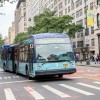
A car-free, bus-only street in NYC is a case study in transportation equity
The Miracle on 14th Street demonstrates how taking a tiny fraction of road space from car traffic and giving it to bus travel is inherently equitable. And charging a very high price to cars for using scarce road space promotes equity and safety.
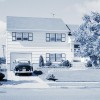
Playing on fears of crime and poverty by playing up the myth of the suburbs
The image of the suburbs as being home to only white and wealthy residents whose ‘suburban lifestyle dream’ is being threatened doesn’t square with the reality of American life in 2020. Half of Black Americans live in the suburbs, which are much more diverse — both racially and economically — than many urban areas.
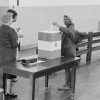
I vote because my father and grandfather couldn’t
Roland B. Smith Jr. is from Washington, D.C., whose residents weren’t allowed to vote in a presidential election until 1964. Growing up, his mother would travel almost 500 miles by bus or train from D.C. to Asheville, North Carolina, where she grew up, just to vote. Roland B. Smith Jr. always votes.
Rice University
Kraft Hall
6100 Main Street, Suite 305
Houston, TX 77005-1892